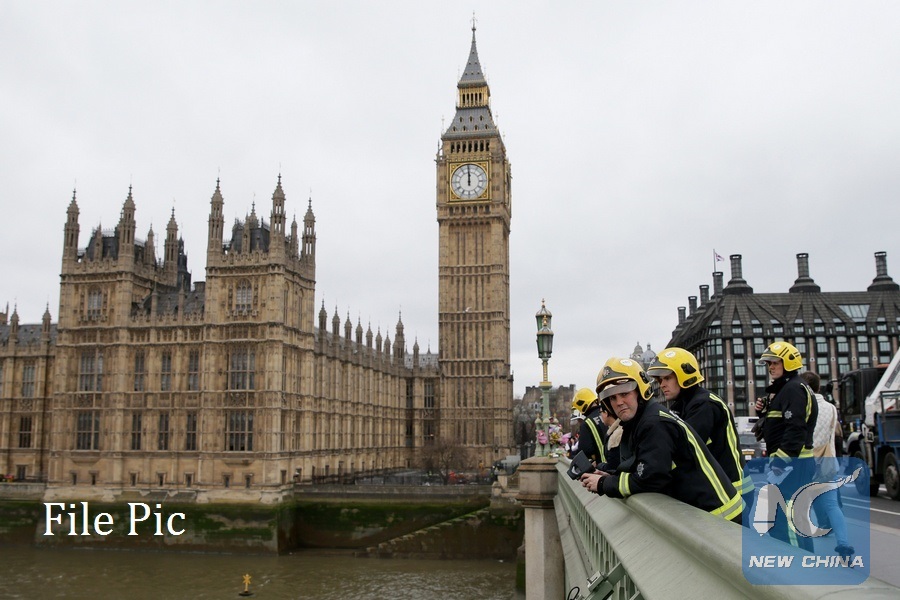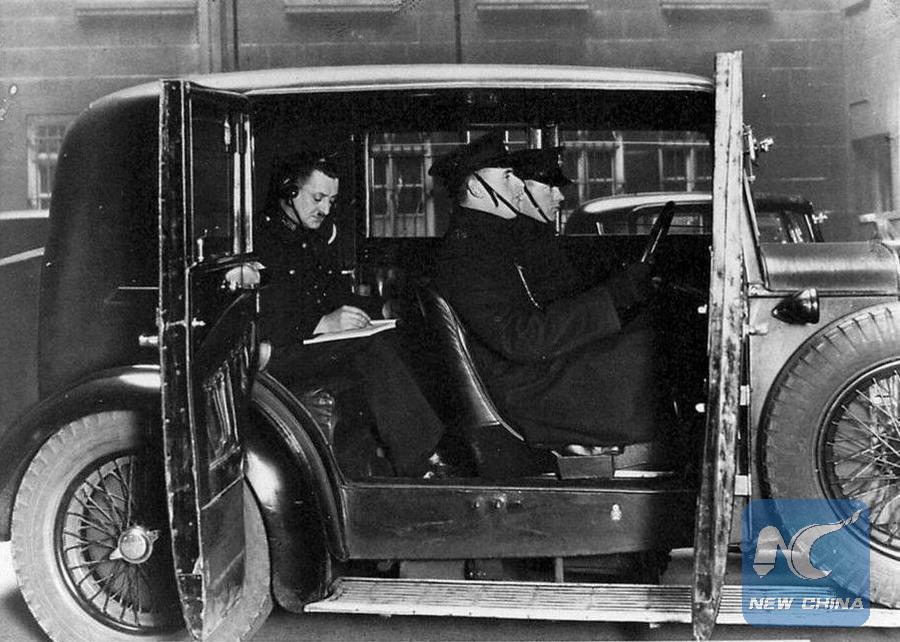
Emergency services members look for the man who fell off Westminster Bridge into the Thames in London, Britain, March 29, 2017. (Xinhua/Tim Ireland)
LONDON, July 2 (Xinhua) -- The introduction of the world's first emergency call telephone number 80 years ago was celebrated Saturday by police forces across Britain.
Now the 999 number to alert police, fire, ambulance and coastguards to emergencies is the best known phone number in Britain.
In London, the Metropolitan Police, described how in its early days at Scotland Yard, a handful of police officers transmitted 999 messages by Morse code to wireless cars
Fast forward to now and the emergency service is run from three high-tech centralized communications complexes in Bow, Hendon and Lambeth.

The photo shows the 999 service in its early days. (Photo courtesy of the Met)
In the early days of the 1930s just 24 staff in the old Victoria Embankment headquarters of Scotland Yard dealt with a couple of hundred calls a day. The three centralized complexes in Bow, Hendon and Lambeth, employ over 2,000 people who deal with up to 20,000 "999" calls every day.
Said a spokesman at the Met: "Eighty years ago this weekend the first ever emergency number system anywhere in the world came into being in London with the introduction of the 999 call -- marking an unprecedented change in the way the public communicated with the Metropolitan Police."
The current system has been upgraded and redesigned numerous times over the decades, leading to the sophisticated multi-screen automated service that prioritizes 999 calls using interactive satellite mapping as well as access to translators in 170 languages and special text phone numbers for deaf people.
Police in Britain have always made use of new technology to help them fight crime. The first case of a criminal being arrested through use of telegrams was recorded in 1845, while in 1910 the notorious murderer Dr Crippen was famously caught after telegrams between London, Canada and a ship in the Atlantic were sent.
The impetus for a new, dedicated emergency number came after a tragic event in London in 1935 when five women lost their lives in a fire at a Wimpole Street doctor's house.
A Parliamentary Committee inquiry followed, and recommended a universal number easily memorized by public and instantly recognizable to telephone operators.
After 111, 222 and 0000 were rejected, the number 999 was agreed and thousands of traditional red phone boxes were converted to allow free emergency calls when the service started on July 1, 1937.
In the early days some of the girl telephone operators were so distressed by the alert sound in telephone exchanges, they fainted.
In the 12 months to end May 2017, the Met in London received just under five million calls, including two million to the 999 emergency number and three million to the more recently introduced non-emergency 101 number.

